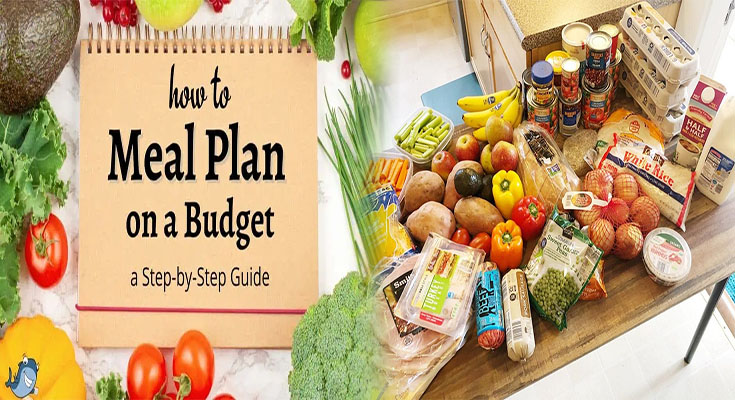Managing a tight household budget doesn’t mean compromising on nutritious and delicious meals. With careful planning and strategic choices, it’s possible to create budget-friendly meal plans that not only save money but also provide satisfying and healthy meals for your family. Let’s explore some tips and ideas for budget-friendly meal planning.
Set a Realistic Budget
Before diving into meal planning, it’s essential to have a clear understanding of your household budget. Set aside a specific amount for food expenses and ensure it aligns with your financial goals. This budget will serve as a guide to help you make smart and cost-effective choices when planning meals.
Plan Meals in Advance
Meal planning is a fantastic way to save money and time. By planning meals in advance, you can avoid the temptation of last-minute take-out or expensive convenience foods. Consider the following strategies:
- Weekly Meal Plan: Create a weekly meal plan by selecting recipes and dishes that utilize affordable ingredients and can be prepared in batches. Look for versatile recipes that can be repurposed into leftovers or transformed into new dishes.
- Sale and Seasonal Ingredients: Take advantage of sales and seasonal produce. Plan your meals around these discounted ingredients to save money. Also, consider buying in bulk if it makes financial sense and the items can be stored properly.
- Repurpose Leftovers: Minimize food waste by incorporating leftovers into future meals. For example, leftover roasted chicken can be used in wraps, salads, or casseroles. Get creative with food combinations to stretch your budget.
Shop Wisely
Smart grocery shopping is a key component of budget-friendly meal planning. Consider the following strategies when heading to the grocery store:
- Make a Shopping List: Create a detailed shopping list based on your meal plan and stick to it. This will avoid impulse purchases and ensure you only buy what you need.
- Compare Prices: Before making a purchase, compare prices at different stores or online platforms. Look for sales, discounts, and coupons to further reduce your grocery bill.
- Buy Generic and Basic Staples: Opt for generic or store brand products, as they are often more affordable but still offer quality. Also, prioritize purchasing basic staples such as rice, beans, pasta, and frozen vegetables, as these items are inexpensive and versatile.
- Shop in Bulk: Consider joining a warehouse club or buying bulk items from a local store if it’s cost-effective and fits your consumption patterns. Buying in bulk can help save money in the long run.
Embrace Cost-Effective Ingredients and Cooking Methods
Choosing cost-effective ingredients and utilizing budget-friendly cooking methods can significantly impact your meal plan’s affordability. Consider the following ideas:
- Plant-Based Meals: Incorporate more plant-based meals into your plan. Beans, lentils, and chickpeas are excellent sources of protein and are much cheaper than meat. Recipes like chili, stir-fries, and soups can be packed with vegetables and plant-based proteins.
- Batch Cooking: Prepare larger quantities of meals and store them in the freezer for later use. Batch cooking not only saves time but also reduces waste by utilizing ingredients efficiently.
- Stretch Meat with Vegetables: Use vegetables and grains to stretch smaller portions of meat. Casseroles, stir-fries, and stews are great examples of dishes where a little meat can go a long way.
- Meal Prep: Set aside time each week for meal prep. Chop vegetables, cook grains, and prepare sauces or dressings in advance. With meal components ready to go, it becomes easier to assemble quick and affordable meals.
Get Creative with Flavors and Spices
Affordable meals don’t have to be bland. By exploring different flavors and spices, you can elevate your dishes without breaking the bank. Invest in a few staple spices such as cumin, paprika, black pepper, and turmeric to add depth and variety to your meals.
Eating well on a tight household budget is entirely possible with thoughtful planning and strategizing. By setting a realistic budget, planning meals in advance, shopping wisely, embracing cost-effective ingredients, and getting creative with flavors, you can create delicious and nutritious meals without overspending. With these budget-friendly meal planning tips, you can conquer financial challenges while ensuring your family’s well-being.





